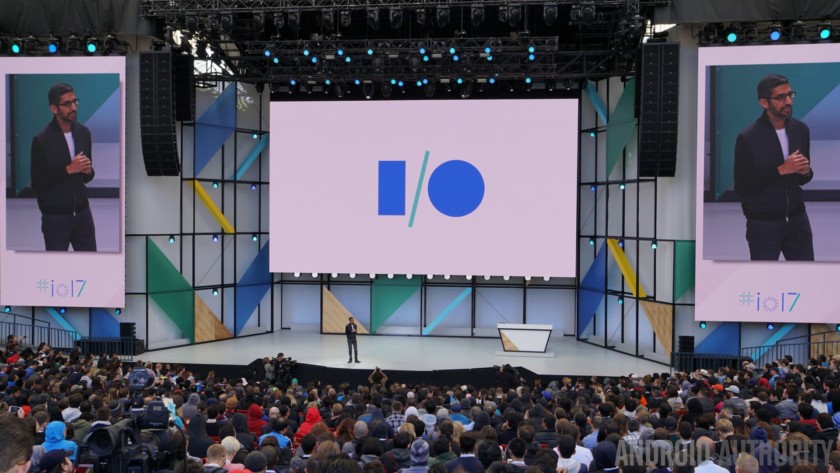Google I/O Conference: Top Announcements
Every year, Google hosts its I/O conference to bring together developers and showcase its up-and-coming products/features.
 This year, Google hosted its conference on May 8th in Mountain View, California. The 2018 conference had a specific focus on artificial intelligence (AI), and Google announced a number of updates coming to its software across its product line. Key announcements from yesterday’s opening keynote include the following:
This year, Google hosted its conference on May 8th in Mountain View, California. The 2018 conference had a specific focus on artificial intelligence (AI), and Google announced a number of updates coming to its software across its product line. Key announcements from yesterday’s opening keynote include the following:
Google Assistant becomes more Conversational, Natural – Since the introduction of voice assistants in the consumer market, companies have been trying to improve the user experience by providing robust, human-like interactions. Consumers’ current voice interactions with machines are controlled and keyword-based due to their perceptions that voice assistants need very clear, specific utterances. Google recognized a need for assistants to understand the social dynamics of a conversation and implemented the following features to its assistant:
- Continued Conversation – To wake Google Assistant, users use “Hey Google” to begin a conversation. Soon users will no longer have to say “Hey Google” every time they prompt their assistant after the first line of interaction has begun. This will change the experience from having to say the wake word each time when asking multiple questions in a row. The update will allow for continued, contextual conversation where follow-up questions can be made without unnaturally having to reopen a voice loop with the wake word. Google Assistant will also be updated with six new voices.
- Multiple Actions – This feature will allow for multiple actions to be executed at once through just one voice command. Users can ask “What’s the capital of Columbia and China and who are its presidents?” and will get a full answer that addresses all three questions. This scenario of multiple requests through one line of command also applies for requests to control devices.
- Pretty Please – Amazon’s recent launch of Echo for Kids with politeness built in illustrates the consciousness nature of companies and how this technology is affecting today’s society. Google followed in the same nature by announcing Pretty Please, an update that provides positive reinforcement to children when they talk to the assistant politely. These developments are designed to answer growing concerns around the impact of voice assistants on the behavior of children. A new generation, dubbed GenV (Generation Voice), is emerging. This generation, children around the age of 7 and younger, has lived with voice assistants their entire lives – how do voice interactions, often terse, shouted, and demanding, affect children and how they learn to speak to one another? Parks Associates data finds that among U.S. broadband households with smart speakers, 42% have children at home.
Streamlining Productivity with Phone Call Automation – With this new initiative, called Google Duplex, Google’s goal is to connect users and businesses more efficiently. As Google’s CEO Sundar Pichai phrased it during his keynote yesterday, “Our vision for our assistant is to help you get things done. A common theme across all this is we are working hard to give users back time. We’ve always been obsessed about that at Google. Search is obsessed about getting users answers quickly and giving them what they want.” In short, technology gets things done, makes things more efficient, and give you more time by doing things for you. Google Duplex was the very example of doing just that. Rolling out initially as an experiment, Google will soon be able to make phone calls for users. You can ask Google to “make an appointment for me at X at X time,” and it will call the business for you and make the appointment. Afterwards, it will follow-up with a confirmation notification. During the keynote presentation, Google showcased real phone calls using Google Duplex. It was impressive to witness how it handled the conversation and back/forth with the other real person naturally while booking a hair appointment. Google Duplex’s interactions and dialogue did not feel robotic, and the person on the other end did not notice that she was talking to a robot. If you haven’t seen this in action, watch it here.
Digital Wellbeing – Google’s goal is to help us untether from our electronic devices every once in a while with the aim to have us embrace JOMO (joy of missing out) instead of FOMO (fear of missing out). Parks Associates data illustrates that the average weekly video consumption on mobile phones continues to grow – from .8 hours in 2010 to2.5 in 2016. After four weeks of usage, Google’s operating system will be able to understand an individual’s habits, help them focus on what matters, and suggest on/off switches for content consumption – all with a focus on being “connected” with one’s family and environment. This initiative will allow users to understand their tech usage with details on how much time they’re spending on certain apps and general phone usage.
Further Reading:
Next: CUJO Discusses the Future of Connected Products
Previous: Insights into Easing Consumers Concerns with Privacy and Data Security with IMONT CEO, Nigel Pugh
Comments
-
Be the first to leave a comment.
Post a Comment
Have a comment? Login or create an account to start a discussion.


